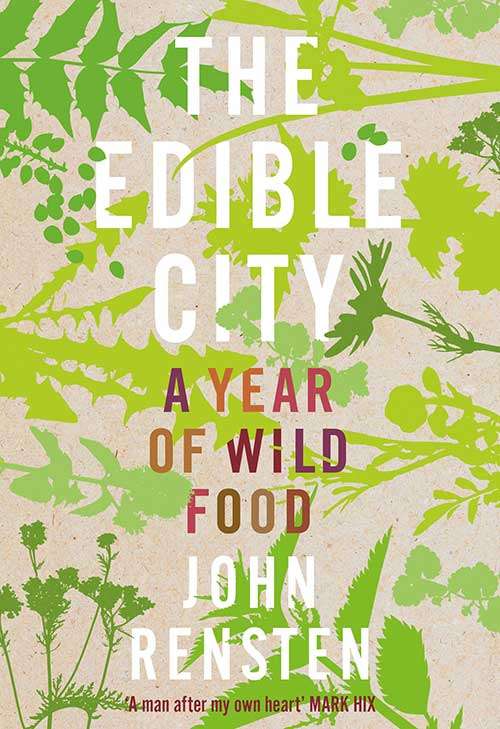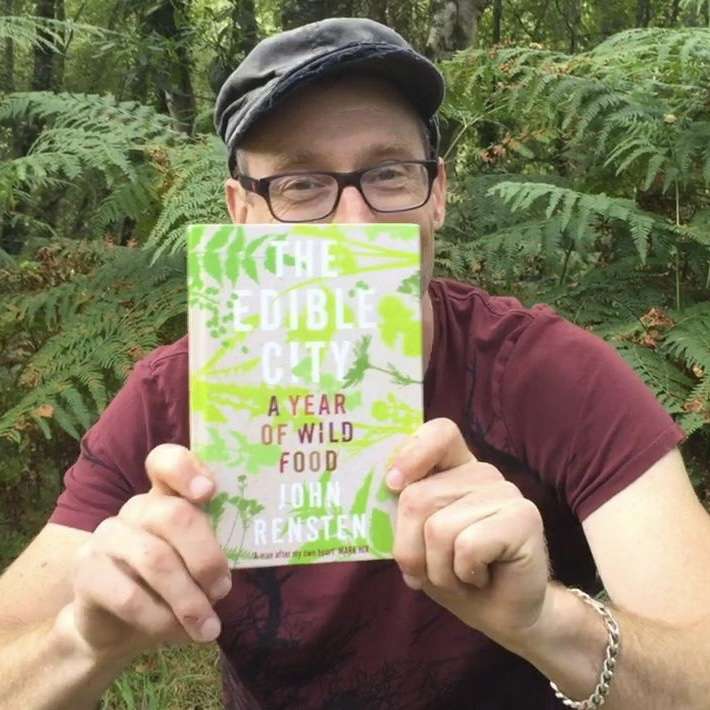John Rensten.
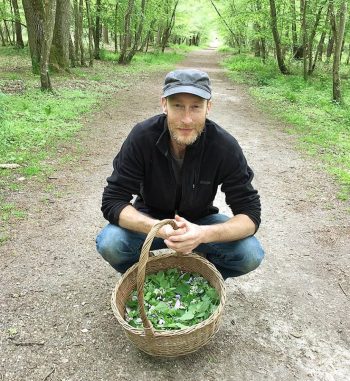
John Rensten (that’s me). Forage London founder, author of The Edible City : A Year of Wild Food, co founder of The Association of Foragers, middle aged rock climber. I lived, worked and foraged in London for 20 years before finally escaping to Dorset, via Hampshire, in 2016 to concentrate on mushroom hunting and coastal foraging. Despite now living in a more rural part of the county, I still run and organise numerous urban foraging events, wild food walks and mushroom forays. Some are hosted by myself and others by the team of extremely knowledgable people that I have “collected” along the way.
In 2004, with a good friend, I opened a successful gastro pub, The Green, in Clerkenwell EC1 and soon found that I could combine my love of foraging wild food with my enthusiasm for running a busy eatery. Actually it was the perfect excuse to get me away from the hectic side of the business and get some more peaceful time in the woods foraging for wild mushrooms or by the coast collecting seaweeds and wild plants. We started to add various foraged foods to the menu.
Initially I picked lots of delicious wild edible mushrooms, my hobby for a few years previously, also tasty plants like wild garlic and sorrel that our chef used to make wild garlic mash or garlic and sorrel soup. Sea-beet from Dorset was always popular too and soon we had the menu dotted with wild foraged treats, wild fennel, rose hips, elderberries, samphire, borage, mallow and various seaweeds.
I don’t have the pub anymore but since then, and on a daily basis, I study wild food, pick wild food, obsess about wild food and love sharing what I have leant, running city foraging walks and taking groups mushroom hunting in The New Forest or combing the seashore in Dorset.
I set up Forage London, now Forage London & Beyond, to give city dwellers like myself a chance to enjoy and discover some of the amazing wild foods that grow all around us. These days we run just as many foraging walks in Dorset and Hampshire as we do in the city. I hope you enjoy this site and that you come on one of my walks soon.
Ken Greenway.
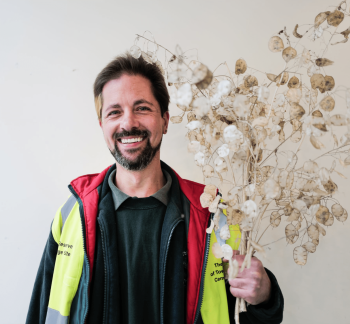
Come Dine with Me winner, Kenneth (Ken) Greenway not only has a smashing beard, he is a man of numerous talents and multiple jobs. Ken works full time as the Manager of Tower Hamlets Cemetry Park (THCP), one of London’s most amazing nature reserves, he’s also an accredited Humanist celebrant, Horticulture Manager for Grounded Ecotherapy and the course leader on Forage London’s ever popular event ‘Wild Food, Wild Nature’. Ken studied Environmental Biology at the University of Greenwich and has worked at THCP since 2002 where he has developed his intimate knowledge of the site as well as his passion for wild food and foraging. THCP nature reserve is one of London’s magnificent seven Victorian cemeteries, with an extraordinary diversity of both woodland and meadow plants, closed to burials since 1966 and a designated public park and Local Nature Reserve a short walk from Mile End Tube Station in E3.
Charlotte Gordon.
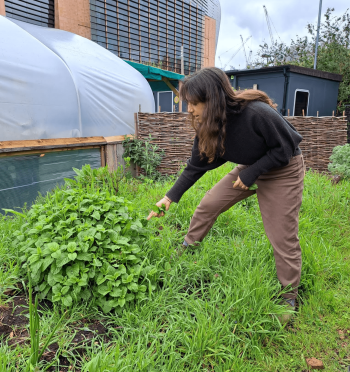
Forager Charlotte Gordon is a food grower, children’s educator, Intuitive herbalist, and community gardener. Charlotte is inspired by the full cycle of growing and foraging food, from the growing and harvesting to the wild gathering, community cooking and making herbal preparations. All of her work centres around plants and people, whether that is community cooking, teaching children, food growing, building school gardens or foraging. She has been running the education program for an inner-city community garden for the last 4 years and has been facilitating workshops and foraging for the last 10 years.
Having grown up in London, it wasn’t until living on the Australian coastline in 2008 that the plant world came into focus. She studied at The School of Intuitive Herbalism and graduated as an Insight Herbalist. A type of herbalist that focuses on plants as medicine and understands ‘medicine,’ beyond the physical properties of the plants. Charlotte’s walks consider the relationship between food and medicine and what happens when we begin to have an intimate relationship with the life cycles of the plants around us.
Peter Studzinski.
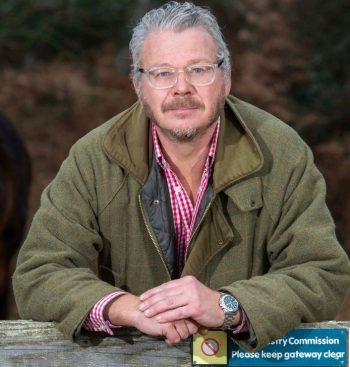
Peter lives in Hampshire, close to The New Forest. He is passionate about the outdoors and nature and with a Polish father, foraging and wild food were very much part of his upbringing. Peter spent 25 years working at Oxford and then Southampton University but always kept alive his interest in all things wild, more recently on his daily woodland walks with his two energetic Labradors. Deciding to concentrate his efforts on foraging and giving up academia nearly a decade ago, he now finds himself very much in demand as a wild food advisor and supplier to some of the country’s top Michelin starred chefs. In the autumn, Peter runs a series of fungi forays for Forage London, exploring the woodland and sharing his knowledge of the new forest and it’s numerous edible mushrooms coming from over 30 years of mushroom hunting in the area.
Ru Kenyon.
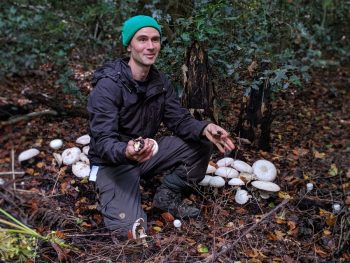
Ru Kenyon, wild food professional since 2010 under the name London Wild Fruits. Member of the Association of Foragers, leader of foraging walks and mushroom cultivator focusing on low tech methods.
Ru got a taste for foraging as a boy eating clover in sandwiches with his mum; the idea that you could eat food straight out of the ground was amazing and that planted the seed for a lifelong obsession. As a lifelong naturalist, environmentalist and explorer of the British countryside, foraging for food was a natural progression whilst studying Physics at the University of Bristol.
Whilst working as an engineer on low carbon building design and finding himself more interested in going out to the woods to photograph wild flowers before and after work, it was becoming clear that something was missing in his career. The 2008 financial crash gave the impetus for Ru to follow his passions and go completely DIY. Building a home, growing and foraging for food.
The local knowledge gained from immersion in the local landscape around London led naturally to foraging as a business and teaching the skills to others. Mushrooms were his first love in wild food and he dabbled in mushroom cultivation from the start. This came together when Ru set up a growing project at the Hawkwood Nursery in Chingford. Ru now teaches and forages wild food full time and has been a member of the Association of Foragers since 2018. The majority of his time though is spent processing the many wild harvests, which he says are the most important skills for foraging in the end.
Andy Knott.
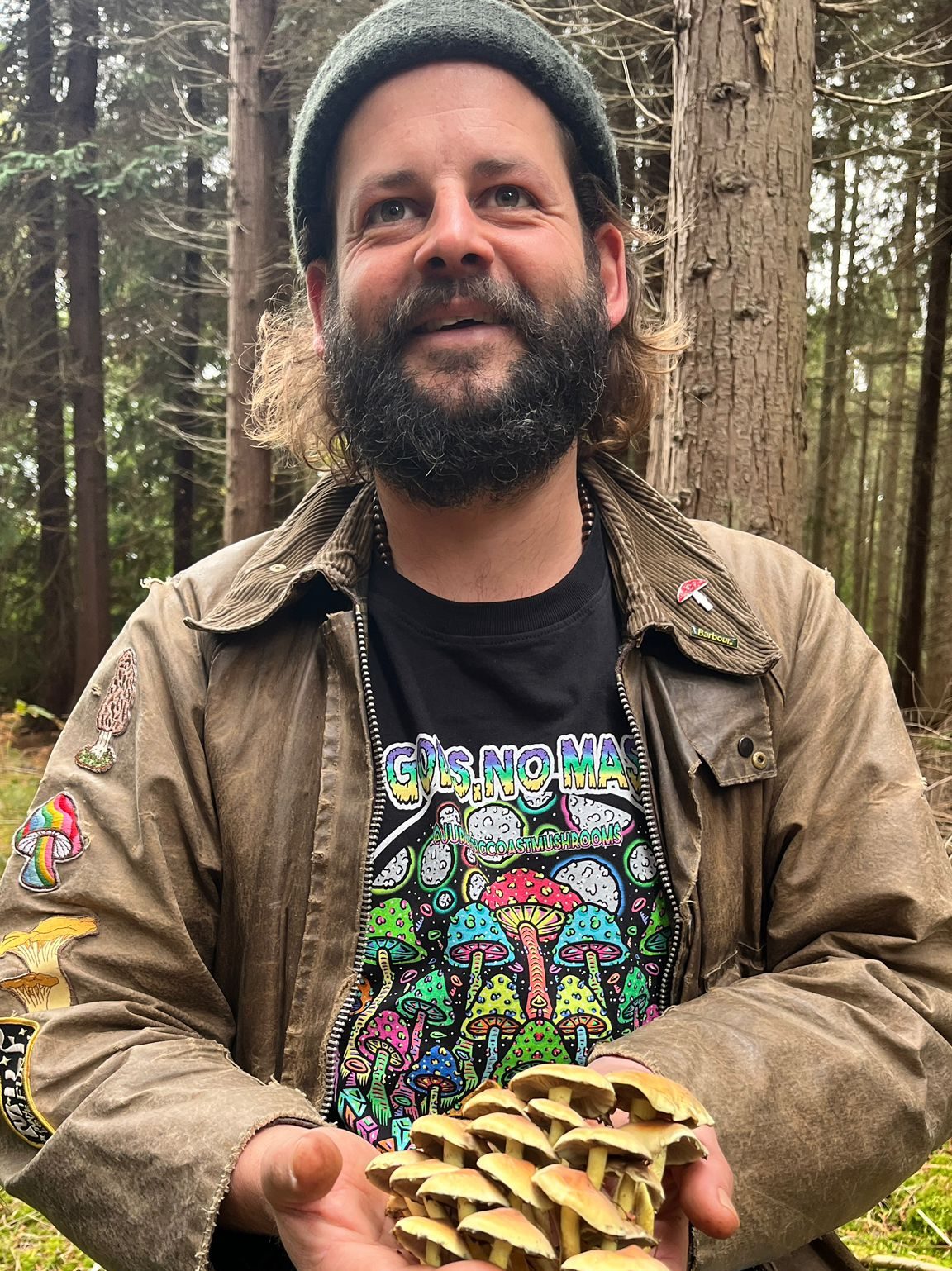
Andy’s lifelong passion for nature and foraging, combined with escaping to rural Dorset in his early 20’s ignited a fungi flame inside him that has burned for the past 15 years. Obsessed with identifying, foraging, cultivating and recording fungi in Dorset and the surrounding areas. A member of the association of foragers and the Fungi Conservation Trust, he now runs Jurassic Coast Mushrooms full time. Cultivating mushrooms for both gourmet and medicinal use, often utilising cloned cultures obtained from wild native species in the UK. Jurassic Coast Mushrooms offers fresh and dried mushrooms, mushroom growing supply’s and ready to fruit mushroom grow kits, along with regular cultivation workshops at their farm in Puddletown, Dorset.
Andy’s enthusiasm and passion for fungi is infectious and his knowledge extraordinary. As well as hosting his own wild mushroom walk, Andy has led numerous forays for the Dorset Fungi Group and now is a regular feature in Forage London’s Autumn Calendar.
The Edible City : a year of wild food.
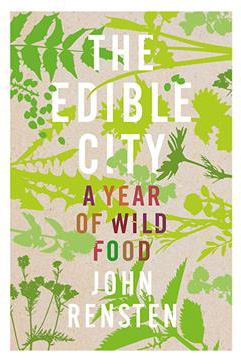
So, while you’re here… You might like to read the introduction to my book, which explains a lot of the reasons that I became obsessed and why I think that now, more than ever, this is a very relevant activity for anyone living in a city.
Introduction… I can think of nothing more fulfilling than cooking with food that I have foraged. To feed yourself and those you care about with ingredients sourced by your own hands is to rekindle a relationship with nature, and the simple act of gathering our own food is the way man has existed for the majority of time on this planet. Although this isn’t an activity that most people associate with living in a twenty-first-century city, I’m sure this book will change the way you look at where you live and allow you to share in some of the wonderful edible experiences that the city has to offer. Continue reading
